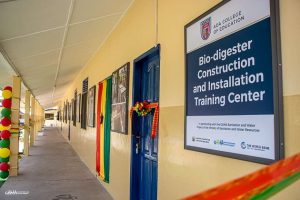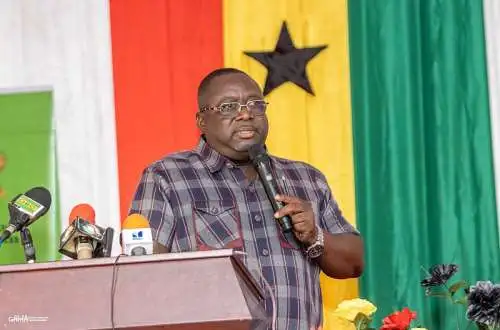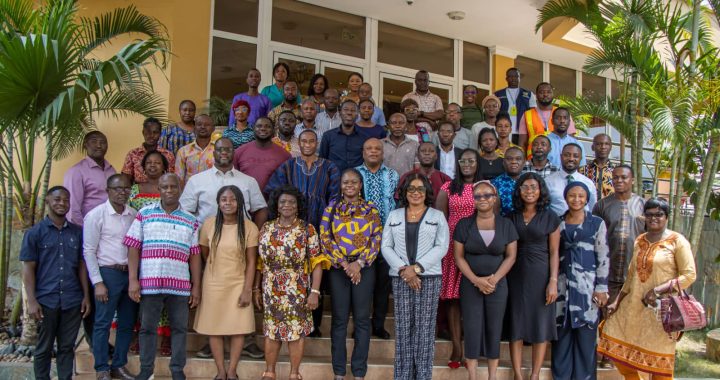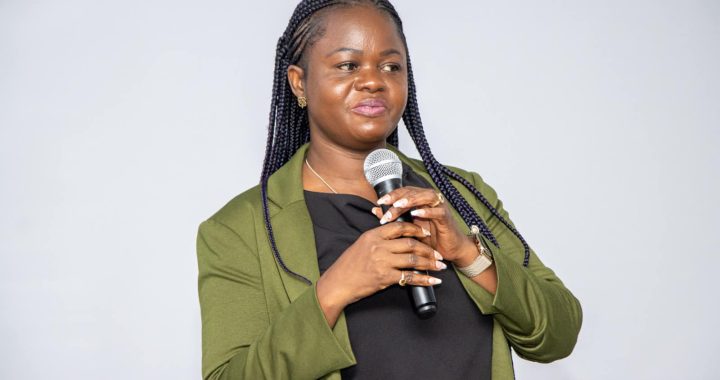
The Ministry of Sanitation and Water Resources has commissioned a Centre to
train Artisans in the Construction and Installation of Bio-Digester Household
Toilets at the Ada College of Education.
The centre opened under the GAMA Sanitation and Water Project (GAMA SWP) is a
collaboration between the Ministry of Sanitation and Water Resources and the Ada College of Education.
The bio-digester toilet technology is fast becoming the preferred toilet option for many urban households in Ghana. The 2021 population and housing census ranked the bio-digester toilet technology as the fourth most used toilet technology in Ghana with about 130,251 households using the technology across the country as at the time of the census.
The Ministry through the GAMA SWP has promoted the technology and provided over 520,000 people with access to bio-digester household toilets in Accra and Kumasi since 2015 to date.
To sustain interest, guard against the proliferation of sub-standard variants of the technology and guide the proper construction of the bio-digester toilet, the Ministry acting through the GAMA SWP has partnered with Ada College of Education to establish the first bio-digester training centre to provide an exhaustive training curriculum on the bio-digester toilet technology.
Delivering a keynote address at the commissioning ceremony of the centre on Monday, March 11, Deputy Minister for Sanitation, Mr. Amidu Chinnia Issahaku said the establishment of the training centre is a testament to government’s commitment to empowering citizens to be at the forefront of sustainable development.
He encouraged the artisans and the youth to take advantage of the centre to learn the construction and installation of game-changing biodigester toilets.
“The government, through the Ministry of Sanitation and Water Resources is fully committed to supporting initiatives that aim to tackle our sanitation challenges head-on.
“We are dedicated to fostering innovation, providing necessary resources, and creating a conducive environment for such transformation projects to thrive. I encourage each of you to take full advantage of this opportunity, to innovate and to be change-makers our country needs,” Mr. Amidu Chinnia Issahaku said.
He further indicated that for the Sanitation Ministry and government, the ambition is not just about improving the number of household toilets but also transforming lives, ecosystems, and the future of every citizen.
He said to achieve this, clean water and proper sanitation should not only be seen as basic human rights but the foundation upon which the country will build a sustainable and
prosperous nation. In his address, the Principal of Ada College of Education, Prof. Prince Boateng lamented over open defecation, explaining that it leads to contamination of the environment and water bodies, exposing the public to a whole array of infections and diseases. He said there is an urgent need for a comprehensive approach that includes investment in sanitation infrastructure,
community education and awareness programmes, enforcement of sanitation regulations and collaboration between government agencies, NGOs, and local communities to tackle the Speaking at the commissioning ceremony, GAMA SWP Coordinator, Ing. George Asiedu said although sanitation has improved in the country in the last seven years, there is more to be done.
He disclosed that while open defecation remains a problem in the country, there is a need to build not less than 4 million toilet facilities for families.
Centre to train Artisan in the Construction and Installation of Bio-Digester Household Toilet at the Ada College of Education is crucial.
“We need the skills and skill Labour to do it and do it right. So what we are seeking to do with this facility is to have the manpower to build these toilets. This Centre is going to train the youth and artisans to provide these services. We need to eliminate open defecation and to do that we need to deal with the challenges of toilet facilities,” Ing. George Asiedu indicated.
The commissioning ceremony on Monday was attended by traditional leaders, District Chief Executives from Ada and its neighbouring districts, sanitation and water experts, as well as a representative from the Coalition of NGOs in water and sanitation (CONIWAS).


